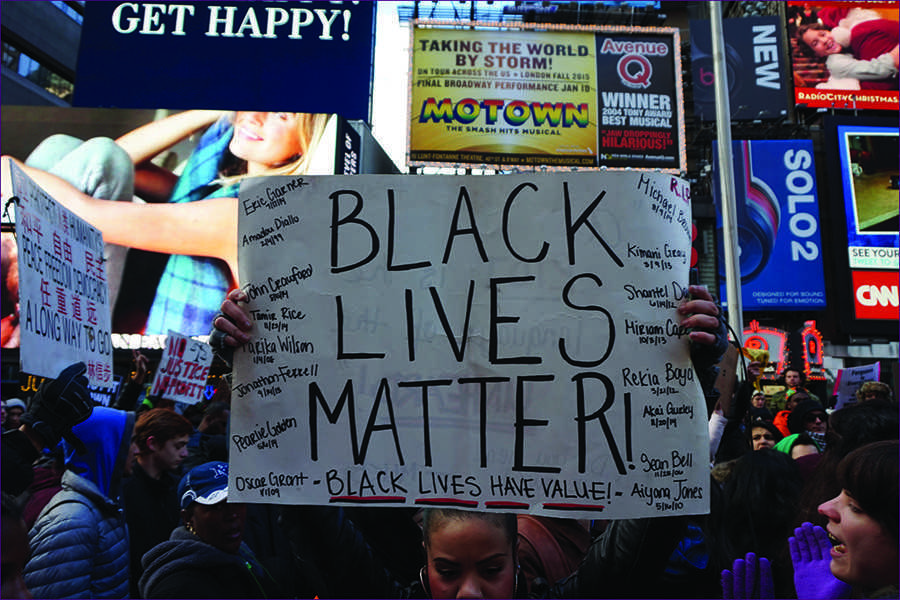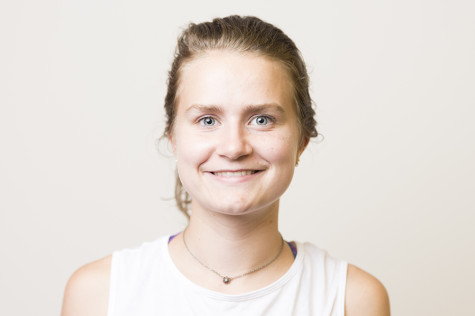NYPD, MTA surveillance of #BlackLivesMatters creates concern
A protester at Time Square
August 28, 2015
Tens of thousands of people in New York marched under the slogan “Black Lives Matter” last winter. Two weeks ago, the Intercept revealed that among those people, some were undercover agents from the Metropolitan Transit Authority and the New York Police Department.
While protesters had long suspected that there were undercover agents, the documents released by the MTA and Metro-North Railroad show that the surveillance was much more widespread than originally thought.
According to the Intercept, the names of undercover police officers are redacted 192 times over the course of 20 protests, from December 2014 to February 2015.
The documents show how officers tracked the movement of the protests, providing live updates to their bosses. But in some instances, the officers took it further, noting specific activists and even taking pictures of them. One particular leader was noted for his presence at the protest.
Chevaun Samuels, a junior in CAS who attended many of the protests, was angered at the idea of leaders being spied on.
“The leader of the movement constantly seeks to bring awareness to the injustices that we face,” Samuels said. “They do not seek violence and confrontations, yet these police officers believe that these leaders need to be constantly watched.”
Some worry that surveillance like this might prevent people from marching, but Samuels disagreed.
“Something like this, however, would never stop my involvement in the movement,” Samuels said. “In fact this drives me to continue my fight and I am sure it will do the same for others.”
While he says he will continue to participate, he does worry about its effect on free speech.
“I believe this is criminalizing free speech,” Samuels said. “we have the right to peacefully gather and speak our minds yet still these police officers feel the need to spend their time spying on us.”
Hannah Weverka, a Steinhardt junior, agrees with Samuels.
“I’m very, very worried about the effects on free speech not only within Black Lives Matter but in activist movements overall,” Weverka said. “This is a grave violation of civil liberties and one that will absolutely grow even more severe if it isn’t addressed.”
CAS senior and president of the Black Students Union at NYU Arielle Andrews said she disagrees, but admitted that the overall NYPD response to the movement was poor.
“I wouldn’t necessarily describe the spying tactics as ‘criminalizing free speech,’” Andrews said. “Since there is a factor of safety that must be taken into account for all protests, whether related to Black Lives Matter or not. However, I do believe that the NYPD could’ve ‘participated’ in a better way. The NYPD could’ve better supported BLM by openly attempting to work with protesters to implement change instead of covertly infiltrating the movement by being undercover.”
A version of this article appeared in the Saturday, August 29, print edition. Email Justine Morris at [email protected].




























































































































































